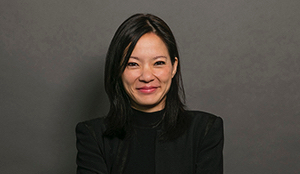China Patent Linkage News Flash (II) - The Supreme Court finalized the Patent Linkage Judicial Interpretations on 5 July 2021
The Chinese Supreme Court (the “SPC”) issued the “Provisions on Several Issues Concerning the Application of Law in the Trial of Civil Cases of Patent Disputes Related to Drugs Applied for Market Authorization” (the “Patent Linkage Judicial Interpretations”), which took effect immediately on 5 July 2021.
The Patent Linkage Judicial Interpretations provide guidance on how the patent linkage court proceedings (“Patent Linkage Case”) will be implemented in China. The SPC has introduced a number of changes which were not contained in the previous draft Patent Linkage Judicial Interpretations issued in October 2020.
We set out below the key provisions in the Patent Linkage Judicial Interpretations.
1. Definitions
The Patent Linkage Judicial Interpretations contain the following definitions, providing clarity to Article 76 of the Patent Law:
- Patent linkage cause of action – a “dispute on the determination of whether the drug falls within the patent protection scope”.
- The court – Beijing IP Court (“BIPC”) has jurisdiction over Patent Linkage Cases (appeal should be filed with SPC);
- The patent in dispute – patent applicable for the Patent Linkage Implementing Measures, i.e. patents registered on the China Marketed Drug Patent Information Registration Platform (the “Patent Platform”);
- The interested parties – patent licensee and the drug marketing authorization holder (“MAH”);
- Confirmation action for generic drug applicant – the generic drug applicant may initiate an action to confirm that the drug does not fall within the patent scope. The confirmation action can only be initiated if the patentee or interested party does not commence the Patent Linkage Case within the prescribed timeline set out in the Patent Linkage Implementing Measures.
2. Required documentation
The following documents must be filed by the patentee or interested party to commence a Patent Linkage Case in accordance with Article 119 (3) of Civil Procedure Law:
- The patent information set out on the Patent Platform, including the patent title, patent number and patent claims;
- The generic drug marketing authorization (“MA”) application information published on the Patent Platform, including drug name, drug type, registration classification etc; and
- The generic drug applicant’s Category IV Certification and supporting documents.
The generic drug applicant must, within the timeline for filing the statement of defence, file with the BIPC, a copy of the technical materials filed with the Center for Drug Evaluation (“CDE”) of National Medical Products Administration (“NMPA”). However, if the technical materials are different from the materials filed with the CDE and this interferes with the patent trial, the generic drug applicant may be punished by a fine, detention or even be subject to criminal liability (Article 111 of Civil Procedure Law).
3. Parallel proceedings
Administrative proceedings which are pending before the China National Intellectual Property Administration (“CNIPA”) (whether for patent invalidation or a patent linkage adjudication) will not affect the commencement or continuation of a Patent Linkage Case filed before the BIPC.
4. Defences
A generic drug applicant can rely on the following 2 defences in a Patent Linkage Case:
- Prior art defence as per Article 67 of Patent Law;
- Prior use defence as per Article 75 (2) of Patent Law.
5. Trade secret protection
Each party is required to keep the other party’s trade secrets and confidential information disclosed during the Patent Linkage proceedings in strict confidence.
6. Interim injunction
The patentee or interested party can apply for an interim injunction to stop the commission of infringing acts until the expiry of the patent, but an injunction cannot be granted to stop the MA application or approval process. The procedure for applying for an interim injunction will follow the existing provisions set out in the Patent Law and Civil Procedure Laws.
7. Judgment
An effective judgment on a Patent Linkage Case will be recognised by the courts in subsequent patent infringement or declaration of non-infringement proceedings in respect of the same patent and generic drug, unless evidence can be adduced to prove the difference between the technical solution of the allegedly infringing drug and the technical documents submitted to the CDE or there are other new grounds.
8. Damages
The generic drug applicant is entitled to claim damages before the BIPC, if the patentee or interested party knew or ought to have known that the patent in suit should be invalidated or the generic drug does not fall within the patent scope, yet it still files a Patent Linkage Case or a CNIPA patent linkage adjudication request.
9. Document service
The BIPC can serve the procedural documents on the contact person, mailing address and/or e-mail address listed on the Patent Platform. Alternatively, the BIPC can serve the legal proceedings as per the address specified in a confirmation letter submitted by the party to the BIPC.

